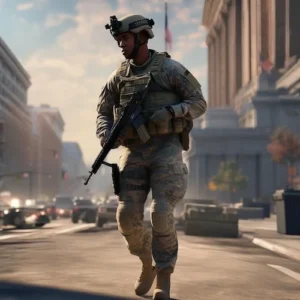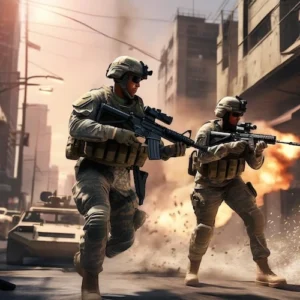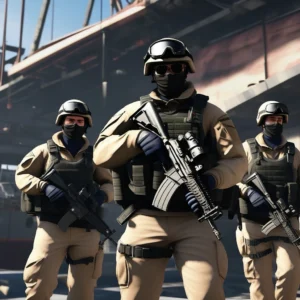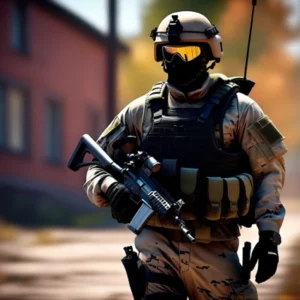Military Investigations: Your Rights When Questioned by CID, NCIS, OSI, or CGIS
The sudden knock on your barracks door, the unexpected phone call from your supervisor, or the casual request to “come down to the office” by a plainclothes agent can shatter a service member’s sense of security. These are often the first signs that you are the subject of a military investigation, potentially by agencies like Army CID, NCIS, OSI, or CGIS. Unlike civilian encounters with law enforcement, military investigations are unique, carrying severe consequences for your career, freedom, and future that demand immediate, informed action.
Many service members mistakenly believe that cooperating fully without legal counsel is the best way to clear their name. This is a critical and often catastrophic error. Military investigators are not there to help you; their sole purpose is to build a case against you. Your silence and the immediate invocation of your rights are your most powerful defenses. This comprehensive guide will illuminate the military investigative process, detail your absolute rights when questioned, expose common pitfalls, and underscore why securing expert military defense counsel from Gonzalez & Waddington is your non-negotiable first step.
I. Understanding Military Investigations: Who’s Investigating You and Why?
A military investigation is a formal inquiry into alleged misconduct or criminal activity. It can stem from various sources and be conducted by different agencies, each with a distinct role.
A. What Triggers a Military Investigation?
An investigation can be initiated by:
- Reports from the Chain of Command: Commanders are obligated to report suspected misconduct.
- Sexual Assault Review Coordinators (SARCs): Reports of sexual assault are immediately referred to criminal investigative organizations.
- Anonymous Tips: Whistleblowers or anonymous sources can trigger investigations.
- Referrals from Civilian Law Enforcement: If a civilian crime is committed by a service member, civilian authorities may refer the case to military investigators.
- Observed Misconduct: Direct observation of a crime or violation.
Upon a report, an initial assessment determines if a formal investigation is warranted and which investigative body should handle it.
B. Key Military Criminal Investigative Organizations (MCIOs)
 These are the primary federal law enforcement agencies within the Department of Defense, responsible for investigating serious criminal offenses (felonies) under the Uniform Code of Military Justice (UCMJ) and other federal laws:
These are the primary federal law enforcement agencies within the Department of Defense, responsible for investigating serious criminal offenses (felonies) under the Uniform Code of Military Justice (UCMJ) and other federal laws:
- Army CID (Criminal Investigation Division): The primary felony investigative agency for the U.S. Army. They investigate crimes such as homicide, sexual assault, drug offenses, fraud, and cybercrimes.
- NCIS (Naval Criminal Investigative Service): The civilian federal law enforcement agency responsible for investigating felony crimes, preventing terrorism, and protecting secrets for the U.S. Navy and Marine Corps.
- OSI (Air Force Office of Special Investigations): The federal law enforcement agency for the U.S. Air Force and Space Force. Their mission includes investigating major crimes, counterintelligence, and protecting critical technologies.
- CGIS (Coast Guard Investigative Service): The federal investigative arm of the U.S. Coast Guard, handling felony investigations related to Coast Guard personnel and maritime-related crimes.
These agencies are highly trained and focused on building a prosecutable case. They are not impartial fact-finders in the way a commander’s inquiry might be; their role is to gather evidence to support criminal charges.
C. Other Investigative Bodies (and why they matter)
- Inspector General (IG) Investigations: While IG investigations focus on allegations of misconduct, fraud, waste, and abuse within the military (e.g., whistleblower reprisal, senior official misconduct), they can uncover criminal activity that is then referred to an MCIO.
- Commander’s Inquiries: These are informal, unit-level investigations often conducted by a commander’s designee for minor infractions. While typically administrative, serious findings can lead to a formal criminal investigation by an MCIO.
Regardless of who initiates contact, if you are being questioned about potential misconduct that could lead to disciplinary action or criminal charges, you should assume it’s a formal investigation and act accordingly.
II. Your Absolute Rights When Questioned: The Shield You Must Wield
The moment you become a suspect in a military investigation, your fundamental rights kick in. Knowing these rights, and, crucially, how to properly invoke them, is your most powerful defense against self-incrimination. Investigators are not obligated to advise you of these rights unless specific conditions are met, but you can always exercise them.
A. The Cornerstone: Article 31b, UCMJ (Your Military Miranda Rights)
Article 31b of the UCMJ is the military equivalent of the civilian Miranda warning, but it offers even broader protection. It states that no person subject to the UCMJ may interrogate, or request any statement from, an accused or suspected person without first informing them of:
- The Nature of the Accusation: You must be told what offense you are suspected of.
- Your Right to Remain Silent: You do not have to make any statement regarding the offense.
- That Any Statement Made May Be Used Against You: Anything you say can be used as evidence in a court-martial or other proceedings.
Unlike Miranda, Article 31b applies anytime you are questioned by *anyone* subject to the UCMJ (not just law enforcement) if you are suspected of an offense, regardless of whether you are in custody.
Crucial: How to Properly Invoke Your Rights: Your invocation of rights must be clear and unambiguous. Do not equivocate. The safest and most effective way to invoke your rights is to state firmly and politely:
- I want a lawyer.”
- “I will not speak and I exercise my right to silence.”
Ambiguous statements (“Maybe I should talk to a lawyer later,” “I don’t know if I should talk”) may be considered insufficient, allowing questioning to continue. If you invoke your rights, questioning *must* stop immediately.
B. The Right to Refuse Consent to Searches
Military members retain Fourth Amendment protection against unreasonable searches and seizures. You have the right to refuse consent for any search of your person, barracks room, on-base housing, locker, vehicle, cell phone, computer, or personal electronic devices. If investigators ask for your consent to search, politely but firmly state, “I do not consent to this search.”
 Refusing consent does not mean a search won’t happen. Investigators can still conduct a search if they obtain probable cause and proper authorization (e.g., from a commander acting as a neutral and detached magistrate, or a military judge), or if an exception to the warrant rule applies (e.g., exigent circumstances). However, by refusing consent, you force the government to follow legal procedures, which can later be challenged in court if violated. Consenting, on the other hand, gives up your rights and makes any evidence found admissible against you.
Refusing consent does not mean a search won’t happen. Investigators can still conduct a search if they obtain probable cause and proper authorization (e.g., from a commander acting as a neutral and detached magistrate, or a military judge), or if an exception to the warrant rule applies (e.g., exigent circumstances). However, by refusing consent, you force the government to follow legal procedures, which can later be challenged in court if violated. Consenting, on the other hand, gives up your rights and makes any evidence found admissible against you.
C. The Right to Counsel: Military vs. Civilian Defense Lawyer
You have the right to legal representation:
- Detailed Military Counsel: You are entitled to a detailed military lawyer (e.g., from Trial Defense Service (TDS) in the Army, Area Defense Counsel (ADC) in the Air Force, or Naval Legal Service Office (NLSO) in the Navy/Marine Corps) at no cost. These attorneys are often capable.
- Civilian Military Defense Counsel: You have the invaluable right to hire a civilian military defense attorney at your own expense. This choice offers significant advantages, as they are completely independent of the military chain of command and typically possess specialized expertise in military law from years of focused practice.
Regardless of who you choose, you must consult counsel *before* speaking to anyone about the allegations. Your lawyer can advise you on your rights, communicate with investigators on your behalf, and begin building your defense.
III. The Investigation Process: What to Expect and How to Respond
Being under investigation can be an incredibly stressful and intimidating experience. Understanding what to expect can help you navigate the process more effectively.
A. Initial Contact and Questioning: The “Softening Up” Phase
Investigators often employ various tactics designed to elicit information or a confession. They may try to build rapport, act sympathetic, suggest cooperation will lead to leniency, or even use deception (which is generally permissible). They might tell you “it’s just a conversation” or “it’s off the record” – but anything you say can and will be used against you.
They may also start with seemingly innocuous “biographical questions” to get you talking before reading your rights. Remain calm, polite, and firm in invoking your Article 31b rights. Do not engage in casual conversation about the allegations.
B. Evidence Gathering
MCIOs conduct thorough evidence gathering, which can include:
- Interviews: With witnesses, alleged victims, and the accused.
- Physical Evidence Collection: Crime scene processing, forensic analysis (DNA, fingerprints, digital forensics), seizure of documents or electronic devices.
- Surveillance and Monitoring: In some cases, physical or electronic surveillance may be used.
Your attorney can challenge the methods of evidence collection, including chain of custody issues for physical evidence or the legality of surveillance.
C. “Titled” Status: A Lasting Mark
If military investigators develop “credible information” that a crime has been committed and you are a suspect, your name may be “titled” and indexed in a military criminal database, such as the Defense Central Index of Investigations (DCII) and potentially the FBI’s National Crime Information Center (NCIC). This happens *before* any charges are preferred or guilt is determined.
The impact of being “titled” can be significant and long-lasting, even if no charges are ever filed or you are found not guilty. It can appear in future background checks, affecting federal job opportunities, security clearances, and potentially your civilian reputation. While there are processes to request expungement or redaction, it’s a difficult battle to win.
D. The Commander’s Role During Investigation
Your commander has a dual role: maintaining discipline and supporting service members. They may issue lawful orders (e.g., no-contact orders with an alleged victim or witness, restrictions on liberty). You *must* obey these lawful orders. However, if your commander or supervisor begins questioning you about suspected misconduct, they are acting as an agent of the military and must advise you of your Article 31b rights. If they do not, any statements you make may be inadmissible.
IV. The Stakes are High: Potential Outcomes of a Military Investigation
A military investigation is never a minor event. Its outcome can range from no action to a life-altering court-martial conviction, profoundly impacting your military career and civilian future.
A. Potential Dispositions of an Investigation
- No Action Taken: The investigation concludes with insufficient evidence to proceed, and the case is closed without any formal action.
- Non-Judicial Punishment (NJP / Article 15): For minor offenses, a commander may impose NJP. While avoiding a court-martial, NJP carries significant collateral consequences on evaluations, promotions, and re-enlistment, and can serve as a basis for administrative separation.
- Administrative Separation: Even without a court-martial, a service member can be involuntarily discharged from the military for various reasons, including misconduct investigated by an MCIO. This can result in an “Other Than Honorable” (OTH) discharge, severely impacting VA benefits and civilian employment.
- Court-Martial: If the investigation uncovers sufficient evidence of serious misconduct, criminal charges may be preferred and referred to a court-martial. This is a federal criminal trial that can result in punitive discharge (Bad-Conduct or Dishonorable), lengthy confinement, and a federal criminal record.
B. Broader Impact on Your Future
- Impact on Security Clearance: Being the subject of a military investigation, or certainly a conviction or adverse finding from one, can trigger a review of your security clearance. This can lead to its suspension, denial, or revocation, effectively ending careers requiring access to classified information.
- Impact on Career & Benefits: An adverse outcome from an investigation (NJP, administrative separation, or court-martial) can derail your military career (affecting promotion, assignments, re-enlistment) and significantly impact your eligibility for hard-earned VA benefits (healthcare, GI Bill, disability, home loans).
- Civilian Life Consequences: Beyond the military, an adverse military record can affect civilian employment, professional licenses, and your personal reputation.
V. The Critical Role of Expert Military Defense Counsel in Investigations
The moment you suspect you are under investigation is the moment you need expert legal counsel. An experienced civilian military defense lawyer can be your shield and guide through this daunting process, protecting your rights and strategizing for the best possible outcome.
A. Immediate Intervention and Rights Protection
A seasoned military defense attorney will advise you to immediately invoke your Article 31b rights and ensure you do so properly. They can then act as an intermediary, communicating directly with investigators on your behalf. This crucial early intervention prevents you from inadvertently incriminating yourself and safeguards your fundamental rights.
B. Guiding You Through Questioning
Your attorney will advise you on whether to give a statement, and if so, how to prepare one strategically. They can also assist in drafting an unsworn statement or, in some cases, negotiate to be present during questioning (though this is not always a right).
C. Independent Investigation and Evidence Review
Your defense counsel won’t rely solely on the government’s investigation. They will conduct their own independent inquiry, gather exculpatory evidence, interview favorable witnesses, and scrutinize every aspect of the government’s evidence, including the chain of custody for physical evidence and the methodologies of forensic analysis.
D. Strategic Communication with Command and Investigators
An attorney can manage all communications with military law enforcement and your chain of command. They can present your side of the story or present mitigating factors proactively, aiming to convince the command to close the investigation, opt for a lesser administrative action, or drop charges before a court-martial referral.
E. Preparing for All Outcomes
A comprehensive defense involves preparing for every potential outcome. Your attorney will analyze whether the investigation is likely to lead to NJP, administrative separation, or a court-martial, and begin building the appropriate defense strategy for each scenario, ensuring you are never caught unprepared.
VI. Why Gonzalez & Waddington is Your Unrivaled Defense in Military Investigations
When military investigators are targeting you, the stakes are astronomically high. You need more than just legal advice; you need aggressive, independent, and battle-tested advocacy that understands the unique pressures and complexities of the military justice system. Gonzalez & Waddington provides precisely that unrivaled defense.
A. Unparalleled Expertise & Specialization in Military Law
Our attorneys possess deep, specialized knowledge of the Uniform Code of Military Justice, the Military Rules of Evidence, and the intricate procedures followed by CID, NCIS, OSI, and CGIS. We have years of focused experience navigating high-stakes military investigations and trials, understanding the subtle tactics employed by investigators and the most effective ways to counter them. Our expertise means we know what to look for, from procedural missteps to evidentiary weaknesses.
B. Absolute Independence from the Military Chain of Command
 A key advantage of hiring Gonzalez & Waddington is our complete independence. Unlike military-appointed counsel, we are not constrained by any chain of command, nor do we face career repercussions for aggressively challenging military authority. Our sole loyalty is to you, our client. This independence empowers us to relentlessly push back against investigators, question their methods, and protect your rights without compromise or fear.
A key advantage of hiring Gonzalez & Waddington is our complete independence. Unlike military-appointed counsel, we are not constrained by any chain of command, nor do we face career repercussions for aggressively challenging military authority. Our sole loyalty is to you, our client. This independence empowers us to relentlessly push back against investigators, question their methods, and protect your rights without compromise or fear.
C. Proactive and Responsive Representation
Time is of the essence in military investigations. We are structured to provide immediate, responsive consultation the moment you suspect you are under investigation. Our proactive approach means we intervene early, often before charges are even preferred, to safeguard your rights, manage communications, and begin shaping the narrative. We aim to control the flow of information and ensure your story is heard effectively.
D. Battle-Tested Trial Lawyers
While the goal is always to resolve investigations favorably and avoid charges, we are always prepared for the worst-case scenario. Our attorneys are battle-tested litigators with extensive courtroom experience in military courts-martial. This trial readiness means we approach every investigation with a strategic mindset, building a defense that stands strong if the case proceeds to a criminal trial. Our aggressive advocacy is designed to pressure the government to resolve the matter favorably or face a formidable opponent in court.
VII. Conclusion: Your Future Demands Immediate Action When Faced with a Military Investigation
Being the subject of a military investigation is an intimidating and dangerous position. The investigative agencies of the armed forces are powerful, well-resourced, and focused on building cases for prosecution. Without immediate, expert legal counsel, service members are vulnerable to self-incrimination, coerced statements, and unknowingly waiving rights that could determine the entire course of their careers and lives.
The most critical takeaway is clear: do not speak to military investigators without first consulting an experienced military defense attorney. Your right to remain silent under Article 31b UCMJ and your right to counsel are your strongest defenses. Invoking them immediately and unambiguously is paramount. Gonzalez & Waddington stands ready to be your unwavering advocate, protecting your rights, challenging the government’s case, and fighting relentlessly for your future from the very first moment of suspicion.
Your freedom, career, and future are on the line. Do not face military investigators alone.
Contact Gonzalez & Waddington immediately for a confidential consultation.
Call Now: 1-800-921-8607



